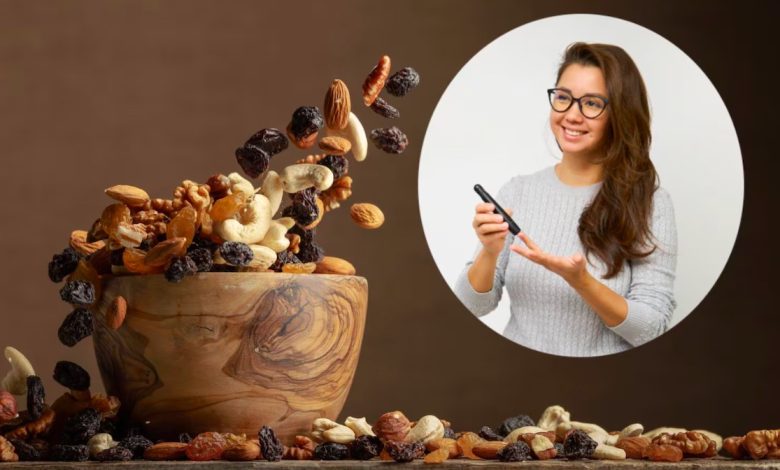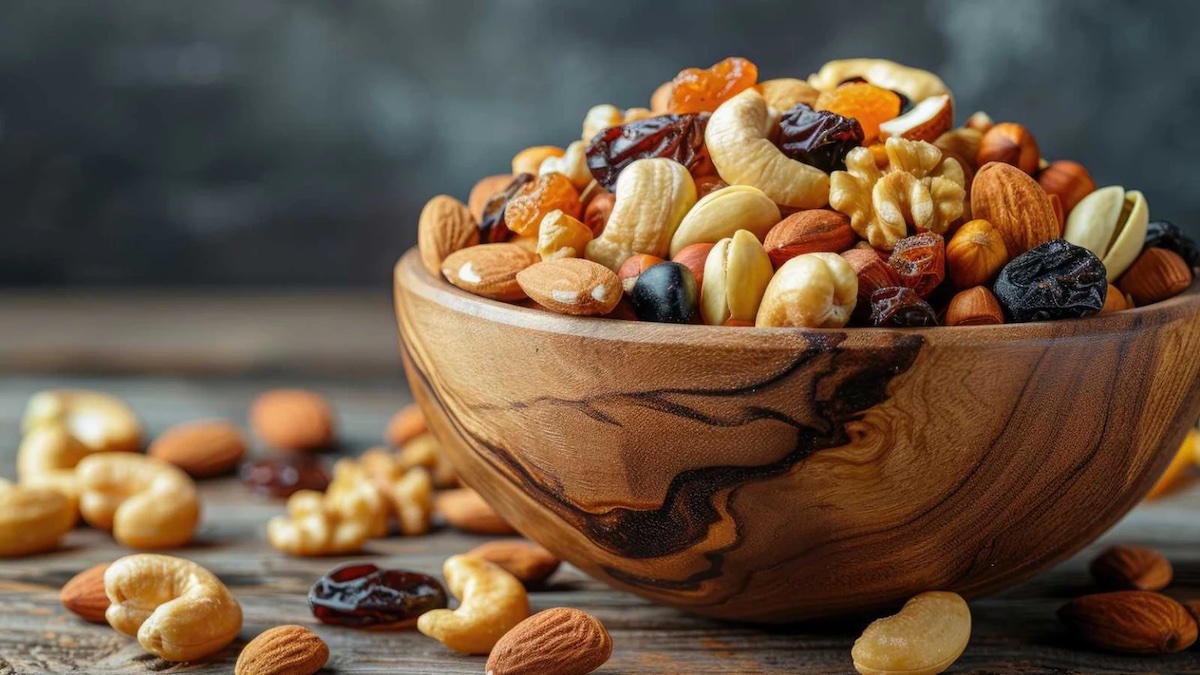Can diabetics eat dry fruits? A nutritionist reveals the best and worst options

dry fruits and diabetes: Dry fruits are considered one of the healthy snacks, and for good reason. Almonds, walnuts, cashews, and others are packed with protein, fiber, healthy fats, and essential nutrients that can keep you energized, support heart health, and even help with weight management. For most people, a handful of these tasty snacks is a simple and healthy way to curb hunger. However, if you have diabetes, some dry fruits may not be suitable for you. That is because when fruits are dried, their natural sugars get concentrated, making them much sweeter per bite than fresh fruit. And this can affect blood sugar levels, especially if you are not eating them in moderation.
What causes high blood sugar in diabetics?
“The main cause of high blood sugar is the insufficient production of insulin by the pancreas. Insulin is essential for regulating glucose in the blood,” explains Khyati Rupani, Clinical Nutritionist and Dietitian. According to the World Health Organization, uncontrolled diabetes can lead to severe damage to the nerves, blood vessels, and organs. Managing blood sugar through diet, exercise, and medication is crucial for preventing these complications.
What makes certain dry fruits a risk for diabetics?
dry fruits and diabetes, Dry fruits are made by removing water from fresh fruits using methods like sun drying or dehydration. This process helps preserve the fruit, makes it last longer, and even concentrates nutrients, which is why dry fruits are often considered a healthy snack. However, removing the water also concentrates the natural sugars, such as fructose and glucose, meaning that each gram of dried fruit contains far more sugar than the same amount of fresh fruit. Because of this, eating large amounts can lead to a quick spike in blood sugar.
“Also, some dried fruits have a high glycemic index (GI), which makes them even more likely to raise glucose levels rapidly,” says Rupani. For diabetics, this means that while dry fruits are nutritious, they need to be eaten carefully and in moderation.
Which dry fruits are risky for diabetics?
Some dry fruits can be risky for people with diabetes because their natural sugars become highly concentrated during the drying process. These include:
Figs
Dates
Dried cherries
Dried bananas
Dried mango
Candied fruits
Eating these in large quantities can quickly raise glucose levels, making it difficult to manage diabetes. Diabetics should enjoy these only in very small portions or avoid them altogether.

Should all dry fruits be avoided by diabetics?
dry fruits and diabetes, Not all dry fruits are off-limits for people with diabetes. While some, like figs, dates, dried cherries, dried bananas, dried mango, and candied fruits, are high in concentrated sugars and can spike blood sugar, there are safer options. Low-sugar, fiber-rich dry fruits can be consumed in moderation and may even help control blood sugar. These include:
Almonds
Walnuts
Pistachios
Cashews
Peanuts
According to the American Diabetes Association, these dry fruits can even help control blood sugar when eaten in the right portions. They are packed with protein, fiber, and healthy fats like omega-3s, which slow glucose absorption and support heart health. The key is portion control and choosing dry fruits with a low glycemic index (GI) to enjoy their nutritional benefits without compromising blood sugar levels.
Also Read:
5 Potential Risks to Be Aware of When Using Protein Powder
5 Reasons to Take Magnesium and Vitamin B6 Together
5 Proven Ways Coffee Can Improve Your Health
5 Ways Regularly Drinking Tea Can Help You Live a Healthier, Longer Life




